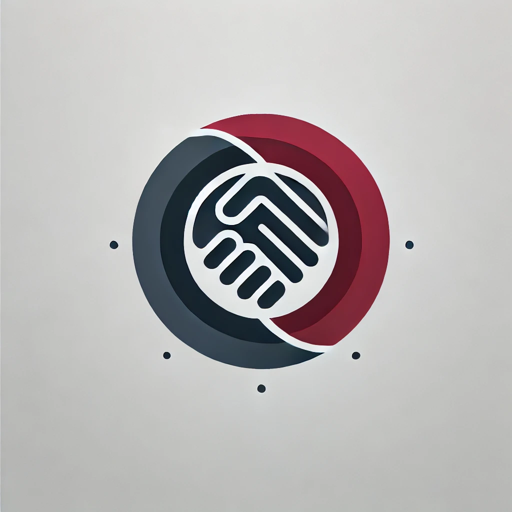The franchise model has long been a beacon for entrepreneurial success, providing a proven business framework with brand recognition and operational support. However, even the most successful franchises encounter challenges, especially in managing human resources and compliance issues. learn how to unlock your franchise growth with PEO services to simplify HR and employee management compliance.
Enter the Professional Employer Organization (PEO), a strategic partner that can help franchises navigate these complexities efficiently. In this article, we’ll delve into the strategic advantages and other benefits that franchises gain by partnering with PEOs.
Understanding PEO Services
Before exploring the advantages, it’s crucial to understand what PEO services entail. A PEO is a firm that provides comprehensive HR solutions for businesses, including payroll processing, benefits administration, regulatory compliance, and risk management. Essentially, PEOs enter into a co-employment arrangement with their clients, sharing employer responsibilities. This allows businesses, including franchises, to outsource their HR functions while maintaining control over day-to-day operations.
Strategic Advantages of PEO Services for a Franchise

1. Streamlined HR Operations
Franchises often operate with lean teams, making efficient HR management critical. PEOs streamline HR operations by handling tasks such as employee onboarding, payroll processing, and benefits administration. This allows franchise owners to focus on core business activities like growth and customer service. Moreover, PEOs provide access to advanced HR technology platforms, enhancing efficiency and reducing administrative burdens.
2. Enhanced Compliance and Risk Management
Compliance with labor laws and regulations is a significant concern for franchises, especially those operating across multiple states or countries. PEOs specialize in regulatory compliance, ensuring that franchises adhere to federal, state, and local employment laws. They stay updated on legal changes and help implement necessary adjustments, reducing the risk of non-compliance penalties. Additionally, PEOs offer risk management services, including workers’ compensation and liability insurance, further protecting franchises from potential legal and financial risks.
3. Competitive Benefits Packages
Attracting and retaining top talent is crucial for the success of any franchise. PEOs provide access to competitive benefits packages that may be otherwise unattainable for small to mid-sized franchises. These packages often include health insurance, retirement plans, and other employee perks. By offering comprehensive benefits, franchises can enhance employee satisfaction and loyalty, reducing turnover rates and associated costs.
4. Scalable Solutions for Growth
Franchises aim for expansion, whether through opening new locations or increasing market share. PEOs offer scalable HR solutions that grow with the franchise. As new locations open, PEOs can seamlessly integrate them into the existing HR framework, ensuring consistent processes and compliance across the board. This scalability allows franchise owners to focus on strategic growth initiatives without being bogged down by HR complexities.
5. Improved Recruitment and Talent Management
PEOs often provide recruitment support, helping franchises attract qualified candidates. They offer expertise in creating job descriptions, screening applicants, and conducting interviews. Once employees are hired, PEOs assist with performance management, training, and development programs. This comprehensive approach to talent management ensures that franchises build a skilled and motivated workforce, driving business success.
Additional Benefits of PEO Services for a Franchise
1. Cost Savings
One of the most compelling benefits of PEO services is cost savings. By outsourcing HR functions, franchises can reduce the need for in-house HR staff and associated expenses. PEOs negotiate better rates for benefits and insurance due to their larger client base, translating to cost savings for franchises. Additionally, PEOs help prevent costly compliance errors and litigation, further enhancing financial stability.
2. Access to Expertise
PEOs employ HR professionals with specialized knowledge and expertise. This access to seasoned experts can be invaluable for franchises, particularly those without dedicated HR departments. PEOs provide guidance on best practices, legal issues, and strategic HR planning, helping franchises navigate complex employment landscapes with confidence.
3. Time Efficiency
Managing HR tasks can be time-consuming, diverting attention from strategic business activities. PEOs take on administrative burdens, freeing up time for franchise owners and managers to focus on growth, customer service, and other critical areas. This time efficiency is especially beneficial for franchises aiming to scale rapidly or improve operational efficiency.
4. Employee Development and Training
PEOs often offer training and development programs, ranging from compliance training to leadership development. These programs help franchises foster a culture of continuous improvement and skill enhancement. By investing in employee development, franchises can boost productivity, innovation, and overall business performance.
5. Improved Employee Relations
Effective HR management is key to maintaining positive employee relations. PEOs provide support in addressing employee grievances, implementing fair policies, and fostering a positive workplace culture. This proactive approach to employee relations can enhance job satisfaction, reduce conflicts, and promote a harmonious work environment.
Case Studies: Successful Franchise PEO Partnerships
To illustrate the impact of PEO services on franchises, let’s explore a few real-world examples:
Case Study 1: Fast-Food Franchise Expansion
A fast-food franchise with locations across multiple states partnered with a PEO to manage its HR functions. The PEO provided comprehensive compliance support, ensuring adherence to varying state laws. Additionally, the PEO’s scalable HR solutions facilitated the franchise’s rapid expansion, enabling the seamless integration of new locations. As a result, the franchise achieved significant growth while maintaining consistent HR processes and minimizing compliance risks.
Case Study 2: Health and Wellness Franchise
A health and wellness franchise struggling with employee turnover and recruitment challenges engaged a PEO to improve its HR operations. The PEO implemented competitive benefits packages, attracting top talent and reducing turnover rates. Furthermore, the PEO’s recruitment support streamlined the hiring process, resulting in a more qualified and motivated workforce. This partnership allowed the franchise to focus on delivering exceptional services to its clients while benefiting from a stable and satisfied team.
Case Study 3: Retail Franchise Compliance Management
A retail franchise operating in multiple states faced complex compliance challenges, from wage and hour laws to safety regulations. The franchise partnered with a PEO to navigate these complexities. The PEO’s expertise in regulatory compliance ensured that the franchise met all legal requirements, reducing the risk of penalties and litigation. Additionally, the PEO’s risk management services provided comprehensive insurance coverage, protecting the franchise from potential liabilities. This partnership allowed the franchise to operate confidently and focus on growth and customer satisfaction.
Unlock Franchise Growth: Best Practices for Choosing a PEO
While the benefits of PEO services are clear, selecting the right PEO partner is crucial for maximizing these advantages. Here are some best practices for franchises to keep in mind:
1. Assess Your Needs
Identify your franchise’s specific HR needs and challenges. Consider factors such as the size of your workforce, locations, and growth plans. Understanding your requirements will help you find a PEO that aligns with your business goals.
2. Research and Compare PEOs
Conduct thorough research to identify potential PEO partners. Look for PEOs with experience in your industry and a track record of success. Compare their services, pricing, and client reviews to make an informed decision.
3. Verify Credentials
Ensure that the PEO is certified by the Employer Services Assurance Corporation (ESAC), accredited by the Better Business Bureau (BBB), or certified with the Internal Revenue Service. These qualifications indicate that the PEO meets high standards of financial stability and ethical business practices.
4. Evaluate Technology Platforms
Review the PEO’s technology platforms for HR management. Look for user-friendly systems that offer features such as payroll processing, benefits administration, and employee self-service portals. Advanced technology can enhance efficiency and ease of use.
5. Request References
Ask for references from current or past clients, preferably in the franchise industry. Speaking with other franchise owners about their experiences with the PEO can provide valuable insights and help you gauge the PEO’s reliability and performance.
6. Understand the Contract
Carefully review the PEO’s contract, including terms of service, pricing, and exit clauses. Ensure that the contract aligns with your franchise’s needs and offers flexibility for future growth or changes in business circumstances. Per-Employee Flat Fee PEO Pricing: Part 1 of 4
Conclusion: Empowering a Franchise with PEO Services
In today’s competitive business landscape, franchises need every advantage to thrive. Partnering with a Professional Employer Organization offers a strategic solution to the myriad HR challenges that franchises face. From streamlined HR operations and enhanced compliance to competitive benefits and cost savings, the benefits of PEO services are substantial.
Franchises that leverage PEO services can focus on what they do best — delivering quality products and services to their customers. By outsourcing HR functions to experts, franchises can achieve greater efficiency, reduce risks, and create a positive work environment that attracts and retains top talent. As the franchise industry continues to evolve, the partnership between franchises and PEOs will undoubtedly play a pivotal role in driving success and sustainable growth. A Strategic Guide to Integrating a PEO into Your Organization

- What are the typical costs associated with using a PEO service, and how do these compare to managing HR functions in-house for a franchise?
The pricing structure can vary significantly depending on the size of the franchise, the scope of services required, and the specific PEO provider. Generally, PEOs charge either a percentage of the total payroll (typically ranging from 2-6%) or a flat fee per employee per month. While this may seem costly at first glance, it’s important to consider the potential savings from reduced in-house HR staff, better rates on benefits and insurance, and the mitigation of compliance-related risks. For many franchises, especially smaller ones, the cost of a PEO can be lower than maintaining a full in-house HR department when factoring in salaries, benefits, training, and technology costs. - Are there any potential drawbacks or limitations to using a PEO service that franchise owners should be aware of?
First, there’s a loss of some control over HR functions, which may be challenging for owners accustomed to managing all aspects of their business. Second, the relationship with employees might feel less direct, as they’ll be interacting with the PEO for many HR-related matters. Additionally, if a franchise outgrows the PEO or decides to bring HR in-house, transitioning away from the PEO can be complex and potentially disruptive. Lastly, while PEOs offer many benefits, they may not be experts in industry-specific HR needs, so franchises in specialized fields might need to supplement PEO services with industry-specific HR guidance. - How does the co-employment arrangement with a PEO affect the franchise’s legal responsibilities and liabilities towards its employees?
It’s a complex area that can vary based on specific agreements and local laws. In general, the PEO becomes the employer of record for tax and insurance purposes, taking on many employer liabilities. However, the franchise retains control over day-to-day operations and employee management. The franchise is still responsible for compliance with certain laws, such as workplace safety regulations. In case of lawsuits, both the PEO and the franchise could potentially be named, depending on the nature of the claim. It’s crucial for franchise owners to thoroughly understand the division of responsibilities and liabilities outlined in their specific PEO agreement and to consult with legal professionals to fully grasp the implications of the co-employment arrangement in their jurisdiction.








